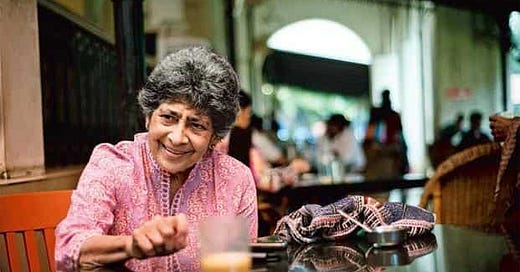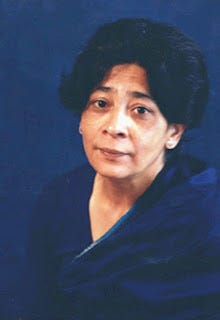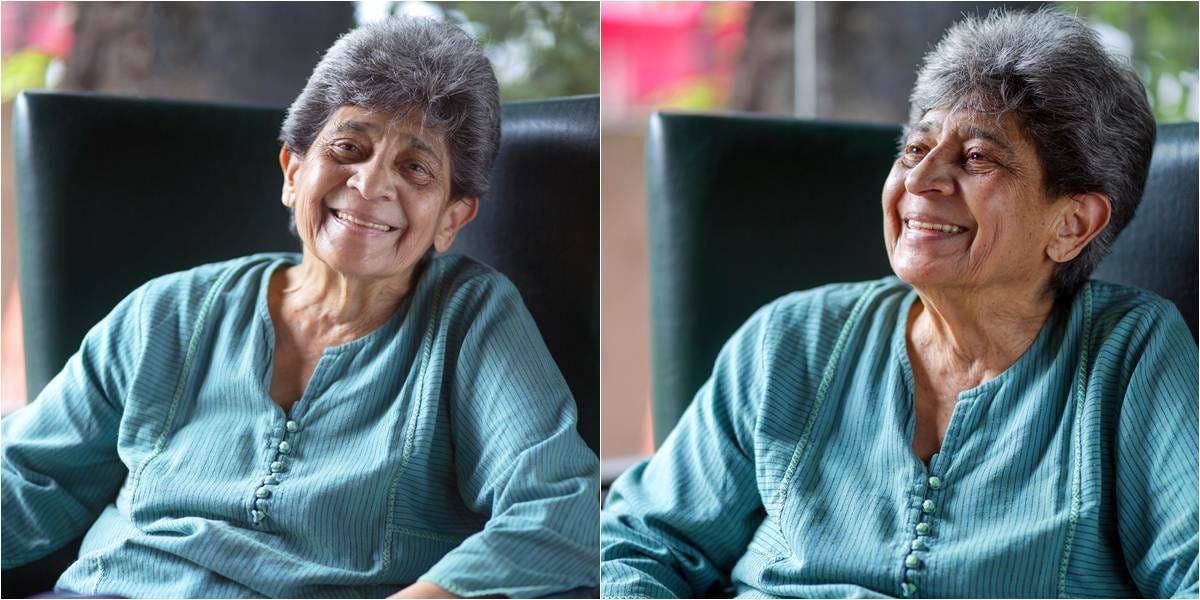Author feature of the week- Suniti Namjoshi
I would rather write a good fable than make a good point. But what I would like best is to both simultaneously.
Saying that this was what it felt like to put
the right foot forward, and then the left, saying
that this was the taste of morning porridge,
that of milk, and this other of a niggling
but persistent pain, saying —
that, I suppose, was what was distinctive —
being unable to keep my mouth shut,
my mind from working. But a poet lives
like any other creature, talks perhaps
more than is normal, her doom no brighter,
nor her death less dismal than any other.
You just read TO BE A POET by Suniti Namjoshi. A lesbian poet and a fabulist (one who writes fables). Her work is playful, inventive while known for challenging prejudices such as homophobia, sexism, and racism.
She has written many collections of fables, poetry, children's books, and novels. Her work has been translated into several languages, including Spanish, Italian, Chinese, Korean, Hindi, and Turkish
We chose to celebrate this queen for the LGBTQIA+ themed week. Many might have guessed already based on our book of the week, “Call me by your name”. If you’ve missed this post, check your mailbox!
Suniti was born in 1941, in Mumbai India. She grew up Indian, worked in Canada, and now lives in the southwest of England with her spouse English writer Gillian Hanscombe.
Some of her famous works include Feminist Fables, The Conversations of Cow, The Blue Donkey Fables, and The Grass Blade. Feminist Fables published in 1981, is described as a “brilliant body of work, marked by sparkling wit, wordplay and inventive power, emerged”.
Namjoshi has expressed many times how her inspiration came from authors like Virginia Woolf, Adrienne Rich, and Kate Millett. She has been active in the feminist movement and gay liberation movements. All of it adding to why she’s such a gem.
Once in an interview, Suniti was asked
What do you think love is? How can we have more of it in our lives – and in the world?
To which she answered
It is our saving grace. As a species, we can be unbelievably awful, but we can also love – our friends, our children, family, partners. Sexual love at its celebratory and joyful best is a language, a goddess, fire, energy. And the gentler, calmer love that makes us reach out to other people – even strangers sometimes – is perhaps what is best in us.
Suniti’s work is inherently queer in the sense that it defies categories. It is formal, yet emotional. It is political, yet without dogmas and by-rote positions.
I personally like what she has to say about lesbian sensibility, with reference to one of her fables.
"If There's such a thing as a lesbian sensibility, Then it’s summed up for me in Virginia Woolf's phrase, 'Chloe liked Olivia' "
Her books often poke fun at political pieties, whether of feminism or of sexual identities, or of affiliations. She also ridicules the wanting to become sages and celebrities (The Blue Donkey Fables). The Mothers of Maya Diip, lays this out most clearly, layer by layer. At one point the Blue Donkey says “Look Madhu you’re just striking an attitude. Can’t you see it’s dangerous?” This thought has always been central in her work.







